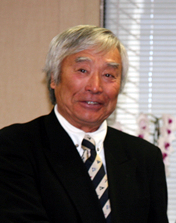A Quote by Christopher Hitchens
"Objective" means that, in a confrontation with the evidence, you would be willing to change your own mind.
Related Quotes
First, what is a revolution? Sometimes I'm inclined to believe that many of our people are using this word "revolution" loosely, without taking careful consideration [of] what this word actually means, and what its historic characteristics are. When you study the historic nature of revolutions, the motive of a revolution, the objective of a revolution, and the result of a revolution, and the methods used in a revolution, you may change words. You may devise another program. You may change your goal and you may change your mind.
When you stand in your own authority, based in your own direct experience, you meet that ultimate mystery that you are. Even though it may be at first unsettling to look into your own no-thingness, you do it anyway. Why? Because you no longer want to suffer. Because you're willing to be disturbed. You're willing to be amazed. You're willing to be surprised. You're willing to realize that maybe everything you've ever thought about yourself really isn't true.
I wonder where you got that idea from? I mean, the idea that it's feeble to change your mind once it's made up. That's a wrong idea, you know. Make up your mind about things, by all means - but if something happens to show that you are wrong, then it is feeble not to change your mind, Elizabeth. Only the strongest people have the pluck to change their minds, and say so, if they see they have been wrong in their ideas.
Look at the evidence and to be willing to question your own truths, and to be willing to scrutinize things that you hold dearly because that way, that transparency, that self-awareness, will protect you from ever becoming somebody that whose beliefs somehow make them have myopic vision about what could be.
I would, like any other scientist, willingly change my mind if the evidence led me to do so. So I care about what's true, I care about evidence, I care about evidence as the reason for knowing what is true. It is true that I come across rather passionate sometimes - and that's because I am passionate about the truth... I do get very impatient with humbug, with cant, with fakery, with charlatans.
It turns out that the men who ultimately, who unpretentiously value peace are willing to sacrifice their own peace of mind in order to render it. The question is, 'Who, between opposing forces, would do such a thing?' It seems only theoretical albeit true that men who accept an objective rather than subjective moral standard are, in a general sense, more capable of making such sacrifices for the sake of peace.

































